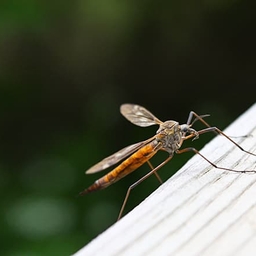Research News from CHOP

Children’s Hospital of Philadelphia-American Heart Association Collaboration Advances Efforts to Enhance Pediatric Resuscitation Programs in Philadelphia
Children’s Hospital of Philadelphia and the American Heart Association have announced an enhanced collaboration to advance the next generation of pediatric emergency cardiovascular care and resuscitation practices.

Access to Greenspace Associated with Improved Mental Health in Early Days of Pandemic
CHOP and Penn researchers have found an association between greenspace and improved mental health during the first six months of the pandemic.
CHOP Researchers Develop Screening Tool to Measure Anxiety in Children with Food Allergies
CHOP researchers have developed a tool to screen children with food allergies for condition-related anxiety.
CHOP Researchers Establish Novel Approach for Developing New Antibiotics
CHOP researchers have developed a novel method for producing new antibiotics to combat resistant bacteria, using a prodrug as a “Trojan horse” to mask the antibiotic.
CHOP and COG Will Validate New Tool to Measure NF1-Related Progressive Vision Loss
CHOP researchers will use optical coherence tomography (OCT) to measure vision changes associated with NF1-related optic pathway gliomas.
CHOP Researchers Use Base Editing in Preclinical Model to Correct Lethal Lysosomal Storage Disease Before Birth
In a proof-of-concept study, CHOP researchers used a vector to edit a single base mutation in Hurler Syndrome, halting progression of a disease that causes irreversible damage before birth.

CHOP Researchers Find Link Between Child Temperament and Eating Behaviors
CHOP researchers have found an association between child temperament and eating behaviors, including eating speed, responsiveness to the sight or smell of food, and satiety.
First Ever Drug Treatment for Aggressive Pediatric Bone Disease Nears FDA Approval
A drug discovered by CHOP researchers is currently in a phase 3 clinical trial and targets the pathological process that leads to excess bone growth in FOP.

CHOP Researchers Reveal How Malaria Parasites Survive Temperature Shifts
CHOP researchers have discovered a heat-shock protein that requires the addition of a lipid particle to function, providing a roadmap for new antimalarial drugs.
CHOP Researchers Develop Humanized CAR T-Cell Therapy that Shows Potential for Patients with Relapsed B-ALL
The treatment modifies a domain in the CAR that targets CD19, making it look more human and therefore less likely to be rejected by patients.